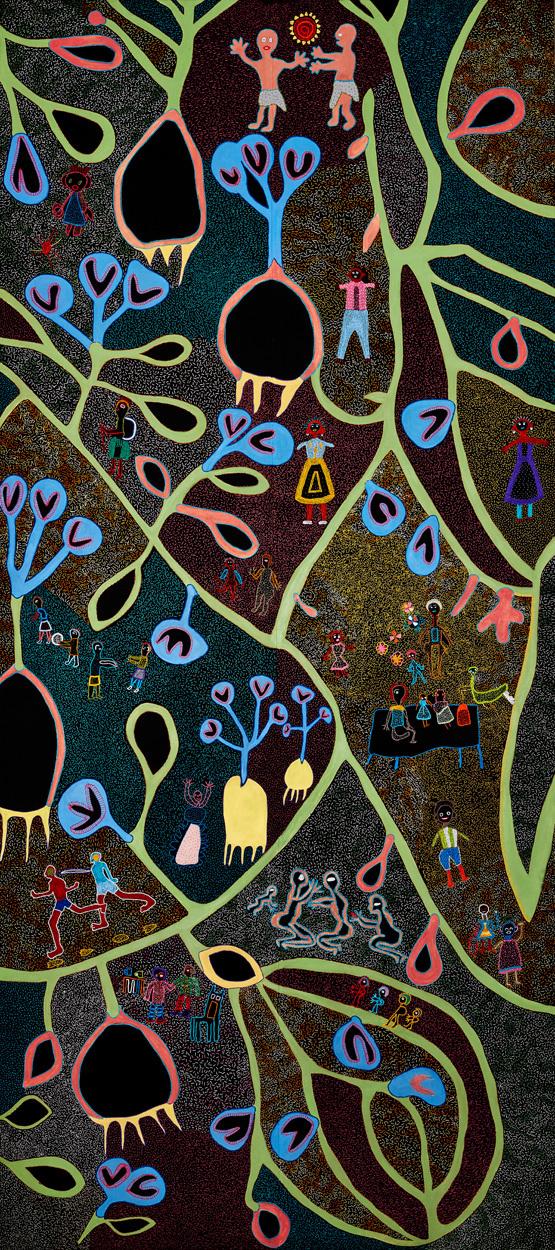
2 minute read
HOW CSIR'S SMART INNOVATIONS CAN HELP IMPROVE HEALTHCARE IN RURAL SOUTH AFRICA
The Council for Scientific and Industrial Research (CSIR) is using artificial intelligence (AI) to develop new technologies that will help improve healthcare in rural areas of South Africa. On Wednesday, 28 June, young researchers from the CSIR showcased these groundbreaking Fourth Industrial Revolution (4IR) innovations.
What is the CSIR developing?
Advertisement
One of the technologies the scientific research organisation is developing is a machine learning-powered diagnostics system. This system uses AI algorithms to help medical professionals diagnose diseases more accurately and quickly. The machine learning-powered diagnostics system could help reduce the time it takes to get a diagnosis, which can reduce the spread of infectious diseases and ultimately help save lives.
Machine learning is a branch of AI technologies that aims to mitigate the potential errors made by newly appointed medical professionals.

"The technology can be used in busy medical centres that handle many patient samples each day," said PhD candidate Nkgaphe Tsebesebe, adding: "With this technology, the diagnostic process can be accelerated, reducing patients’ waiting time. It can diagnose thousands or even millions of samples in just a few seconds, which is particularly helpful in preventing the spread of viral and infectious diseases."
Tackling TB
Another technology that the CSIR is developing is an opticalbased biosensor for detecting Mycobacterium tuberculosis (TB). TB is a serious disease that can be deadly if not treated. South Africa has one of the highest TB burdens worldwide. The optical-based biosensor is a small, portable device that uses light to detect TB bacteria in a patient's sample. This could help make diagnosing TB easier in remote areas, especially rural areas, where there may not be access to traditional TB testing methods. The technology also aims to significantly reduce the diagnostic time required for TB cases, making TB diagnostic affordable.
"Although molecular tests are available for detecting and diagnosing TB, they take several weeks to give a diagnosis and are often expensive to run. In addition, there are no point-of-care tests commercially available locally to ease the burden of using molecular tests and the costs associated with running them," said Sipho Chauke, another PhD candidate who discussed the new technology at the media briefing.
The World Health Organization (WHO) has an “End TB strategy” to eradicate TB by 2025. The CSIR-developed technology contributes to this strategy by offering access to medical technologies that can be used in healthcare systems, allowing for the diagnosis of TB at little to no hassle to ordinary South Africans.
Tracking the spread of viruses
The CSIR is also developing a Localised Surface Plasmon Resonance (LSPR) system. This system uses lasers to detect mutations in the genomes of viruses, such as SARS-CoV-2 (which causes Covid-19 disease) and HIV-1. This could help to track the spread of these viruses and avoid the need for laboratory testing, which is often time-consuming, and to develop new treatments.
“The availability of a simple, fast and reliable laser-driven diagnostic technique will reduce the time and costs involved in mutation detection in the health sector,” said PhD candidate Phumlani Mcoyi.






